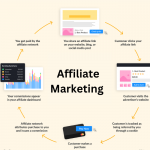If you’re looking to start your own online business, then you’ll need to start by doing a bit of research on what SEO is and what it involves. In this article, we’ll provide a brief overview of what SEO is and how it can help your business, as well as outline the steps that you need to take in order to get started. So if you’re ready to get started on your seo journey, read on!
When you think about starting your own online business, one of the first things that comes to mind is likely SEO – or “Search Engine Optimization.” But what exactly is SEO, and how does it help your business? Read on to find out!
SEO (Search Engine Optimization) is the process of making your website rank higher in search engine results pages, meaning that visitors who are looking for your type of product or service will find you sooner rather than later. It can be a complex and time-consuming process, but with the right strategies and tools, starting and running an SEO campaign can be simple and rewarding.
Get your business idea
If you want to start a SEO business, the first step is to come up with an idea that you can realistically execute. There are many different ways to get started, so make sure you decide on something that will fit your skills and interests. Once you have your idea, you’ll need to find a way to market it. There are many ways to do this, so find what works best for you.
If you have an idea for a business, but don’t know how to get started, start by checking out the resources below. You’ll find tips on how to ideate, develop a strategy, and finally launch your business. Whether you’re looking to start a clothing company, create an online course, or run your own blog, these tips will help get you on the right track.
Tip 1: Get organized
Before you can think about anything else, you need to get your business organized. This means creating a realistic plan and setting goals. Use a template like this one to get started.
Tip 2: Research your competition
Before you can come up with any strategies, you need to understand your competition. Find out what they’re doing well and what they could be doing better. This information will help you create a unique selling proposition (USP) that sets you apart from your rivals.
Tip 3: Build relationships with influential people
Building relationships is key when starting any business. And SEO is no different. You need to reach out to bloggers, social media influencers, and other influential people in your industry and offer them free content or services in exchange for reviews or word of mouth. This will help you gain recognition and build a following.
Choose the right keywords
When starting your own SEO business, the first step is to choose the right keywords.
The best way to do this is to use keyword research tools such as Google AdWords Keyword Planner or Google Trends. These tools can help you identify high-traffic keywords that are also relevant to your niche and your target audience.
When starting your own SEO business, the first and most important step is to choose the right keywords. This can be a daunting task, as there are an infinite number of keywords to choose from. However, by narrowing down your focus, you’ll be able to create a more targeted strategy that will help your business grow.
To start, it’s important to determine what your target market is. Are you targeting businesses that sell products or services? Are you trying to rank for related keywords or keywords that are specific to your industry? Once you have a rough idea of your target market, it’s time to start researching the best keywords for your business.
Research your competition
The first step to starting a successful SEO business is doing your research. Know what your competition is doing and how they are ranking on search engines. Then, use that information to build effective SEO strategies.
You can’t succeed in SEO if you don’t understand your competition. The more information you have about your competitors, the better prepared you will be to take advantage of their weaknesses and create a competitive edge for your business.
Here are some essential steps for research:
1. Identify your target audience.
2. Find out what they’re reading and talking about online.
3. Check out their website traffic stats and analyze their SEO strategies.
4. Learn as much as you can about their business model, their products and services, and their resources.
5. Get to know their team members and figure out who would be best suited to help you with your SEO campaign.
6. Familiarize yourself with their competition’s marketing strategies so that you can anticipate any challenges or opportunities they may pose to your own business.
Build your website
When starting your own SEO business, you’ll need a website to showcase your work. And fortunately, setting up your own website is easy and cost-effective, even for a beginner. There are a number of free and paid options available, and there’s no need to be an expert designer or developer to get started.
In fact, many popular blogging platforms like WordPress and blogger offer easy-to-use templates that you can customize to match your business.
Once you have your website up and running, the next step is to create content that will rank high in search engines. This means writing quality, keyword-rich articles that provide valuable information for your target audience.
You can also include videos, infographics, and images on your site to boost traffic and engagement. And finally, make sure you’re optimizing your website for Google, Yahoo! Search, and other major search engines. By following these simple steps, you can start building an effective SEO business today!
Add content to your website
1. Define your target audience.
Know your target audience and what they are looking for before you start writing. If you don’t know who to target, use some research tools to figure out who your competition is or what topics would be popular with your target audience.
2. Create a content plan
You need to have a plan before you start creating content for your website. Decide what topics you want to cover and how often you want to update your website with new content. Once you have a content plan, start writing!
3. Optimize your website for search engines
Make sure all of the text on your website is keyword-rich, and make sure the images on your website are optimized for search engines as well. Use keywords throughout the body of your articles, in the titles and in the tags associated with your posts.
Drive traffic to your website
When you start a blog, you want to make sure that you’re driving traffic to your website. The best way to do this is by creating content that people will want to read and share. You can accomplish this by writing about topics that are relevant to your business and audience, and by promoting your content through social media, email marketing, and other online methods.
Make sure to keep your blog updated regularly and include fresh content to keep your visitors coming back. And remember: always be customer-centric when it comes to your blog posts, content strategy, and overall site design. That way, you’ll be sure to attract positive attention from search engines and build a loyal following of potential customers.
Generate leads and sales through your website
In order to start a successful SEO business, you will need to generate leads and sales through your website. There are a number of methods that you can use to achieve this, and the most effective approach will depend on your specific business and goals.
Here are some tips for generating leads and sales through your website:
-Create an online presence for your company: Make sure you have a website, social media profiles, and other online assets that represent your business. This will help potential customers find you, and it will also help boost your reputation in the industry.
-Develop a strong content marketing strategy: Content is one of the key elements of a successful SEO campaign, and it can help you attract leads and generate sales. Make sure you are creating high-quality content that addresses your target audience’s needs and interests.








